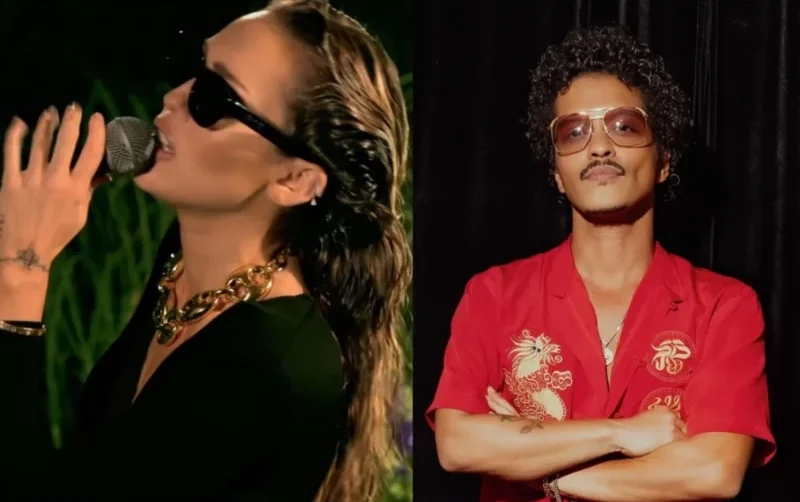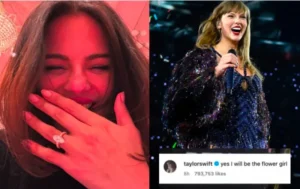In a shocking turn of events, pop superstar Miley Cyrus is in the midst of a sizzling legal dispute that could have serious implications for her music career. The “controversy,” if you can call it that, centers on Cyrus’s smash hit “Flowers,” which, according to a not-so-secret source, is too similar for comfort to former “American Idol” runner-up Bruno Mars’s tear-jerking 2013 ballad “When I Was Your Man.” Miley’s obviously not the first pop star to face accusations of plagiarism, but with a federal jury trial in the works, could this be the beginning of the end for her reign atop the charts?
Rapidly becoming the talk of the town, the lawsuit has been filed by Temple Music Investments. Gregory Hayne and Michael Pollock, co-writers with Miley of “Flowers,” are in the hot seat alongside her. Defendants named in the suit target various entities in the entertainment world that have played a part in the “Flowers” distribution. And insiders say this is a two-sided story. There’s one side in here, apparently, that’s not too happy with the world of celebrity culture either and may serve up a counter-narrative along the way.
According to inside information from the gossip mills, “For any devoted fan of Bruno Mars’ soulful crooning, it is simply beyond belief!” The plaintiffs allege that “Flowers” lifts a number of musical and lyrical elements from “When I Was Your Man.” They argue that the chorus of the Miley song has a hard-to-miss thematic echo of the Bruno Mars song, suggesting a clear “copy and paste” job that is almost subliminal in its effect. They point out that Mars’ song is an anthem of lost love, and that both the Mars song and the Miley song are about love gone wrong.
However, the drama doesn’t stop there. The lawsuit demands that not just “Flowers” but any further version or performance of it be stopped immediately. And it also seeks unspecified damages, which could turn out to be an enormous sum if this case of alleged copyright infringement is deemed to have some serious heft behind it. So far, no lawyers for Cyrus or any other parties have responded to interview requests, which might also be interpreted as a sign that they aren’t too eager to face the cameras. Could this litigation end up somehow besmirching Miley’s newly shiny Grammy awards?
In an interesting backstory, Miley has previously revealed the creation story of “Flowers,” detailing in a straightforward British Vogue interview how the song was originally set to a more bittersweet tune and filled with lyrics that looked more toward past moments of self-reflection and sadness. Yet, in keeping with her more sunny-side-up public persona, Miley and her team of songwriters opted for an empowering end result that better fits the mood of “fake it till you make it.” The irony, of course, is that this creative process might now be at the heart of Miley’s legal problems.
The firestorm of speculation and debate around plagiarism and artistic inspiration has set social media platforms and gossip boards abluzz. Could Miley Cyrus’s self-love anthem actually be an homage gone wrong? Or are industry bigwigs just trying to gin up some buzz—and maybe even some more dollar signs—that they’d get if the song had actually been a purely original work? Fans and critics seem to be on the edge of their seats as they wait to see what will happen next in this delicious drama.
Continue to listen, esteemed audience, as we keep on unpicking the potential artistic standoff of Miley Cyrus and the Emojicons. Will Cyrus respond in kind to the angry opposable thumbs? Will she hire a legal team to work their magic through the artistry of imitation? Or will her lawyers issue an eldritch defense, suggestively posing the question, “Is an emoji even a real thing?” One way or another, this is going to be a buzzworthy event—the Gryphon Gallery vs. Cyrus—in March 2019!




